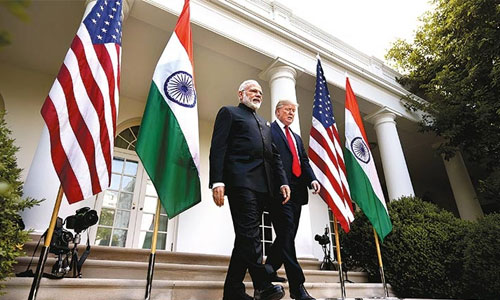The US and India held their first “2+2” dialogue in New Delhi on September 6th, attended by their foreign and defense ministers. Both countries agreed to strengthen bilateral defense and security cooperation, but it only mentioned the strengthening of the Indo-Pacific cooperation at the regional level. This indicates that India has limited efforts to strengthen bilateral cooperation with the US, especially to avoid smaller regional cooperation with the US. In contrast, India was more positive at the fourth summit of BIMSTEC (Member states of the Bay of Bengal Initiative for Multi-Sectoral Technical and Economic Cooperation) held at the end of August. Currently despite BIMSTEC has not made any substantial progress, India is trying to promote the organization to participate in multi-dimensional cooperation in a broader and wider field such as regional connectivity, coastal shipping, energy transport and tourism, implement more practical cooperation and deeper integration in the bay of Bengal, and further enhance the central position and important role of the organization in the contact with neighboring countries. Through these actions, India has increased its geopolitical layout to surrounding areas, especially trying to break through the traditional cage that India dominates in South Asia and open up the channel of regional cooperation between Southeast Asia and South Asia to reshape India’s position in geopolitics on the basis of geo-economy.
The fact that India is losing surrounding areas is a geopolitical conspiracy. After the “India-Pacific strategy” launched, the Trump administration of the US intensified its layout in the Indo-Pacific region and its offensive against China, provoking regional powers such as India to adopt hostile attitude and anti-china measures towards China. On the one hand, it ignores China’s efforts to change the status quo of poverty and backwardness in the region and safeguard regional peace and stability through “The Belt and Road” initiative. On the other hand, new versions of the “China threat theory” have been constantly put forward, prompting India to form a confrontation with China in various fields and levels. China and India once fell into the shackle of the “zero sum game”.
Of course, it’s undeniable that Sino-Indian game has also been utilized by some other countries. For a long time, India has been an integral part of the foreign policy and domestic politics of the neighboring countries. However, India’s status and role in the surrounding countries have gradually weakened and India has become the target of attacks by the nationalist forces in these countries in the Sino-Indian geopolitical game. In the meantime, they clearly realized that they had greatly reduced their dependence on India and had more choices in foreign relations, and they learned to seek profits in Sino-Indian game. Besides, they are wary of the great power rivalry between China and India and keen to avoid getting caught up in the intense geopolitical game.
Under this “zero-sum game”, the interests of both China and India are damaged, which is far from conducive to the implementation of their foreign policies and the maintenance of their national interests. Therefore, a clear understanding of the changes in geopolitical forms in the region and timely adjustment of external strategies according to the concrete situation will contribute to regional stability and maintenance of national interests. China has promoted “The Belt and Road” initiative in South and Southeast Asia and adhered to the new concept of win-win cooperation in international relations. Its purpose is to eliminate barriers between countries, realizing regional peace and prosperity. But India misjudged China’s behavior in the region, regarding it as a competitor and antagonist. Consequently, the tense border confrontation appears between China and India and India’s relations with neighboring countries have also been strained. These countries have been seeking cooperation with China and India has always been in a passive state in the geopolitical game. In order to change the status quo, the adjustment made by India becomes the key to reduce the game of great powers and enhance the geo-economic cooperation.
In light of the changing geopolitical situation, India is actively adjusting its external strategy. Chinese and Indian leaders held an informal meeting in Wuhan in May 2018, which not only became the first step in improving Sino-Indian relations, but also launched India’s adjustment to neighboring relations. In this regard, India changed its attitude to China’s enhanced influence in its surrounding areas and began to accept China’s strengthening of relations with India’s neighboring countries, regarding China as an important participating force in India’s regional cooperation. At the same time, India recognizes that the intervention of extraterritorial forces is an important source of political complications in the region. It is not conducive to safeguarding national interests and promoting regional cooperation. On the contrary, it is easy to fall into the “zero-sum game” of geopolitics. Therefore, limited participation in bilateral cooperation with the US and more emphasis on strengthening cooperation with surrounding countries or regions are important measures taken by India to reshape the geopolitical situation in surrounding countries.
The adjustment of surrounding diplomatic strategies made by India is not only to the benefit of maintaining national interests of India and surrounding areas, but also to the benefit of regional peace and stability as well as smooth promotion of regional cooperation. Given this, China and surrounding countries should continue to actively promote butt joint between regional cooperation protocols so as to realize prosperity and development of regional cooperation.
Home » Opinion » India Reshapes Surrounding Geopolitics
India Reshapes Surrounding Geopolitics
| Jiao Nie, Dekai Huang & Hongxi Chen

